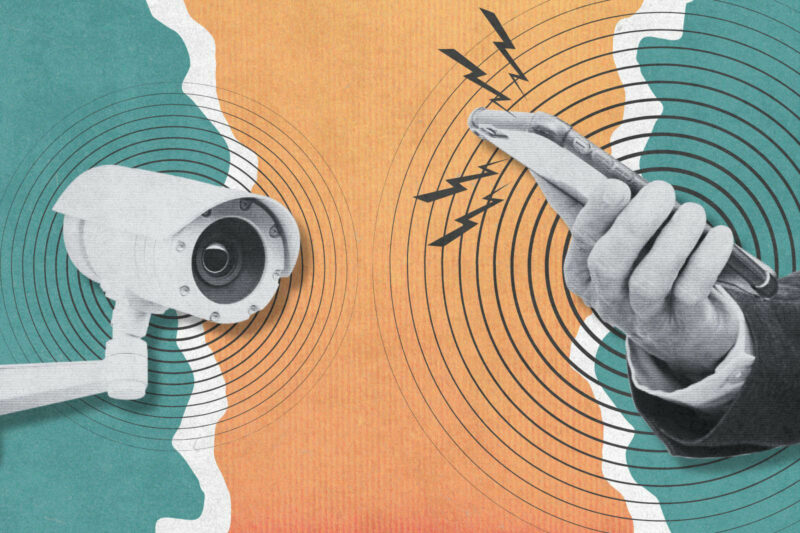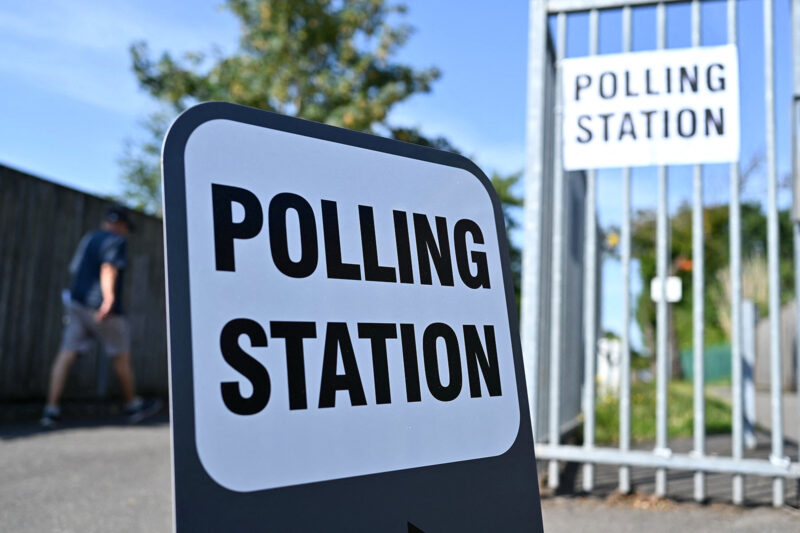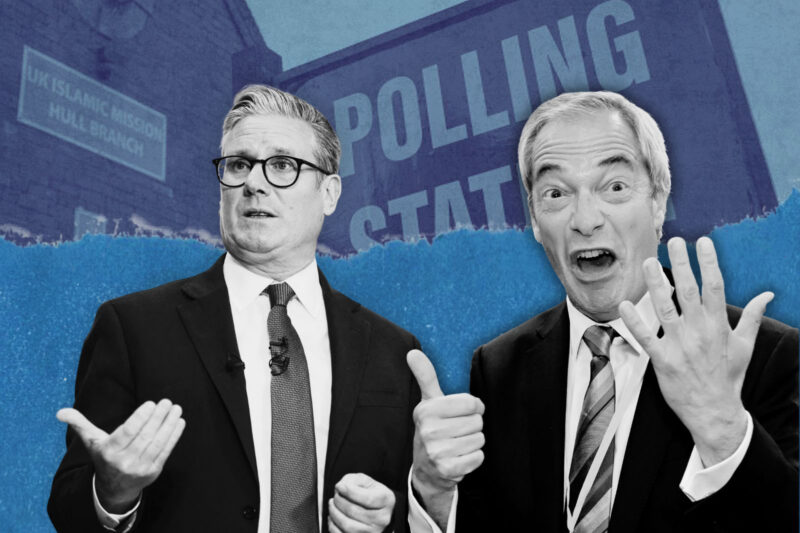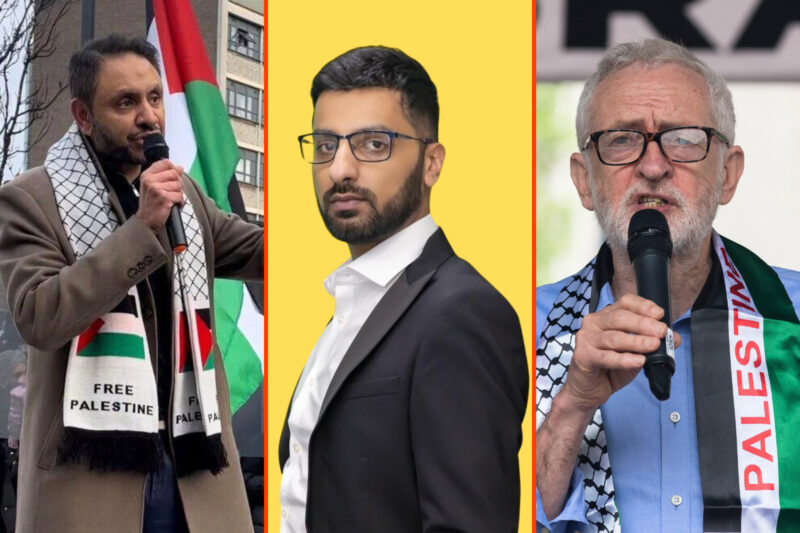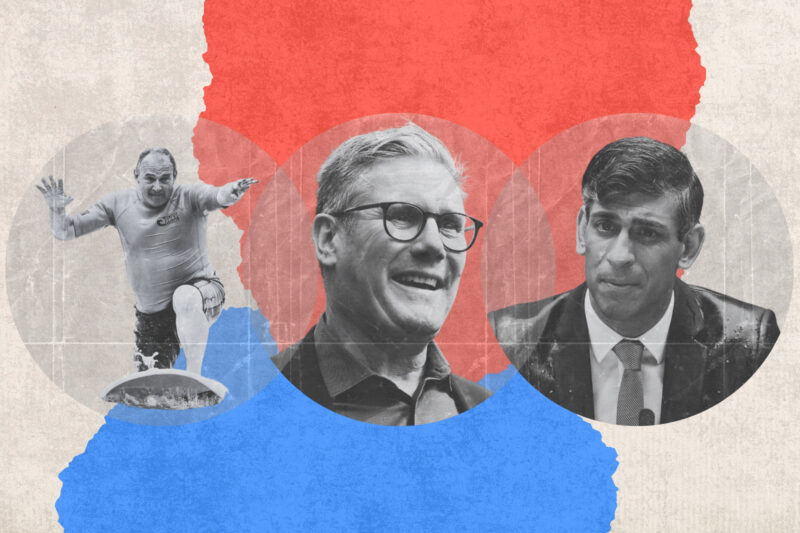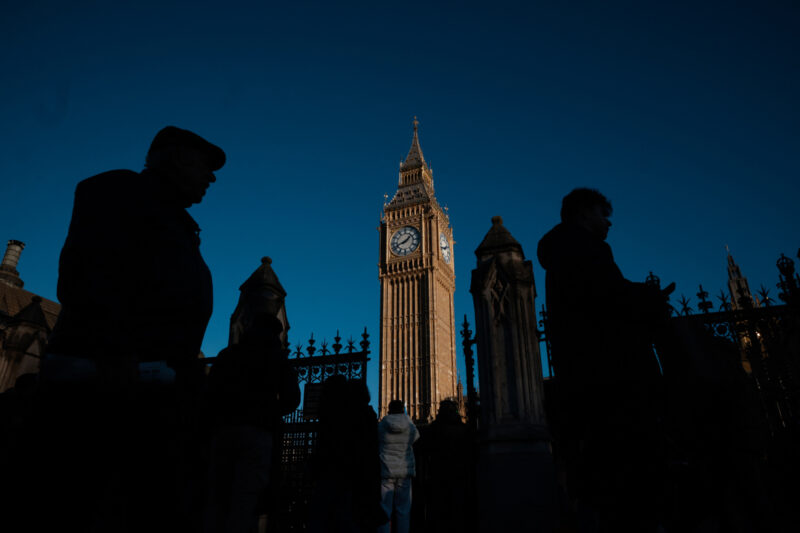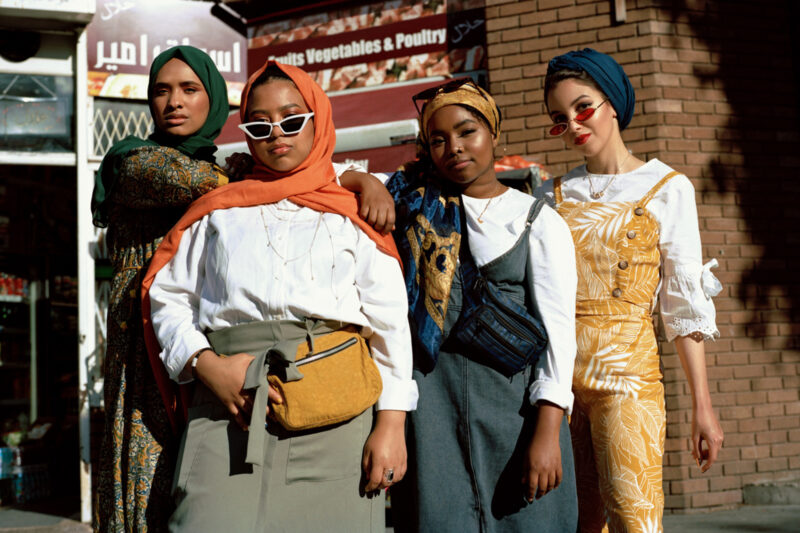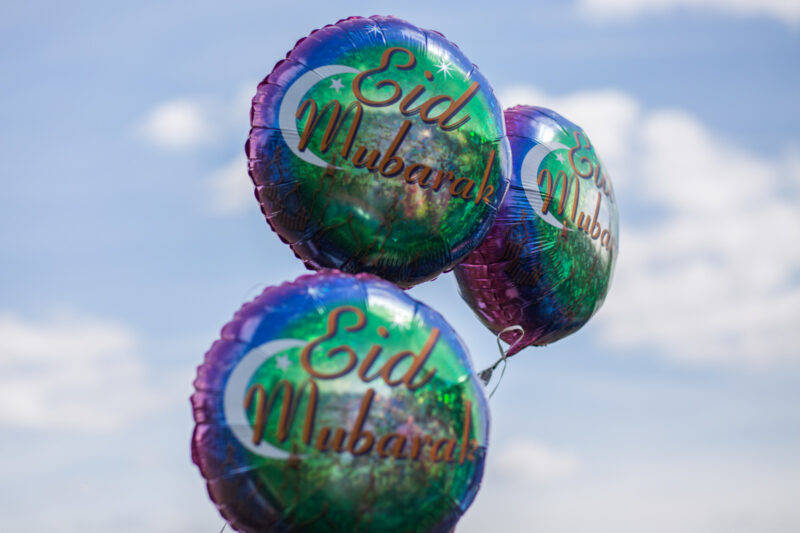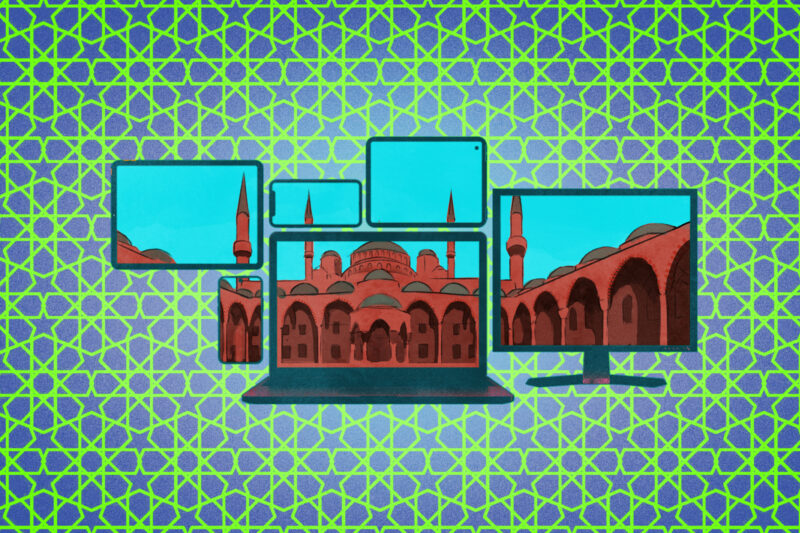UK General Election Poll: Most voters concerned about the crisis in Gaza would consider voting independent
Labour losing voters to the Liberal Democrats and the Greens as one in five Muslims rank the conflict as their number one policy issue
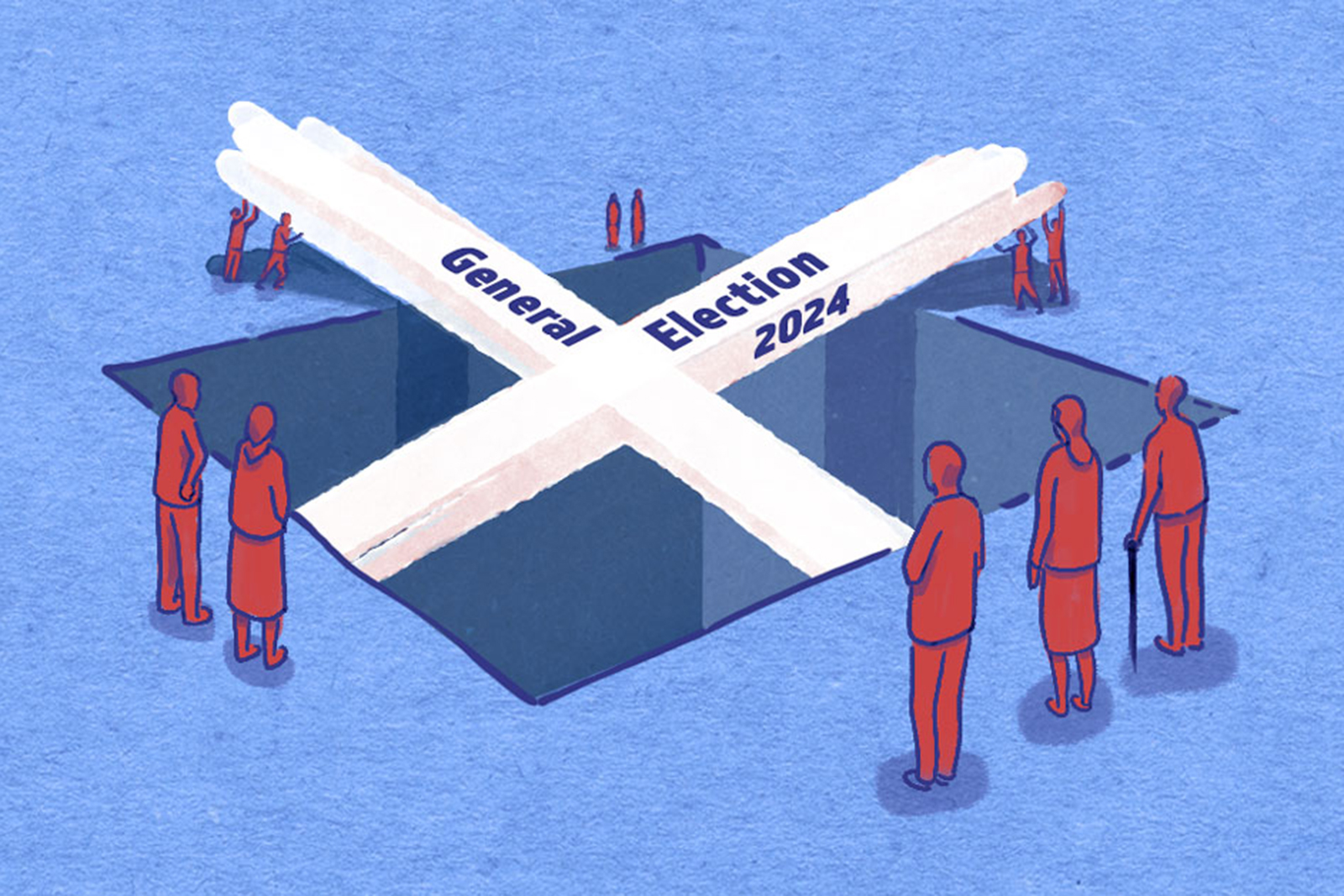
Most voters who rank the crisis in Gaza among their top five election concerns would consider voting for a pro-Palestine, independent candidate given the chance, according to an exclusive new UK general election poll conducted for Hyphen.
Concerns over the mounting death toll in Gaza can be seen in voter intention, with 44% of Muslim voters ranking the conflict as one of the five most important issues ahead of the 4 July election. Of these, 86% said they would consider backing an independent candidate running on the issue. For 21% of Muslim voters it was the most important election issue. Among the general population, of the 12% who put Israel-Palestine in their top five concerns, 64% said they’d consider voting for a pro-Palestine independent candidate.
The findings come from an exclusive poll commissioned by Hyphen and conducted by Savanta. A total of 2,862 adults across the UK — including 1,366 nationally representative UK Muslims and 1,496 nationally representative UK adults — were interviewed about their voting intentions between 24 May and 3 June, before nominations closed.
While Labour’s support among Muslims remains relatively unchanged since the autumn, with almost two thirds (63%) intending to vote for Keir Starmer’s party, the Liberal Democrats and Greens have respectively seen a 3% and 2% upswing in Muslim support.
Hyphen’s survey found Muslims and the wider population were largely aligned on the policy issues most important to them in the run-up to 4 July, agreeing on the NHS, inflation, the cost of living and the economy. Among Muslims, the NHS ranked the highest overall (57%), followed by inflation and the cost of living (51%) and the economy (48%).
Muslims diverged from the nationally representative sample of UK adults on the issue of Israel’s war on Gaza, which has killed more than 37,000 people and injured more than 84,000.
More than four in 10 Muslims (44%) said the conflict was among their five biggest concerns, and one in five (21%) ranked it first – the highest number for any single issue. Meanwhile, 12% of the UK at large ranked the violence as a top five concern, with 3% saying it was their number one priority.
“Palestine is a long-term issue with Muslims, but right now it has a very powerful immediacy,” said Tariq Modood, a political scientist based at the University of Bristol.
“Our identification with the cause is intergenerational — it extends to older Muslims, middle-aged Muslims and young Muslims. There is a deep concern and hurt in how the west has ignored the injustice of Palestinians in favour of supporting Israel.”
The findings follow reports that Labour intends to pledge recognition of a Palestinian state as “part of a peace process” in its election manifesto, due to be published on Thursday.
Timothy Peace, a senior lecturer in politics at the University of Glasgow, said the pledge looks like “an attempt to regain Muslim and left-wing voters”.
He told Hyphen: “There has been quite the shift in Labour’s position, from the early days, when they said Israel had a right to defend itself, to moving to this position of a ceasefire but with lots of conditions, and now apparently recognising Palestinian statehood. I think it’s an admission by the party that they really got it spectacularly wrong on Gaza.”
Recent weeks have seen Labour’s initial refusal to call for a ceasefire in the Israel-Palestine conflict dent the party’s support in Muslim areas during England’s local elections in May. Results from 58 local council wards where more than one in five residents identify as Muslim showed Labour’s share of the vote was 21% down on 2021, the last time most seats were contested.
The Muslim Vote, a campaign group aiming to organise voters to back pro-Palestine candidates, has so far endorsed 49 candidates ahead of the election, of whom 24 are running as independents. The group has recently stated it would not endorse any Labour or Conservative candidates.
But Peace predicted that anger over Labour’s stance on Gaza is unlikely to unseat many of its candidates.
“Even in the constituencies with the highest level of Muslim voters, there are unlikely enough to shift the vote in a way that the Labour candidate ends up losing, given that many of them have very, very big majorities — for example, Shabana Mahmood in Birmingham and Rushanara Ali in Bethnal Green,” he said. “It would take a huge swing to oust them, but we could see one or two surprises in other parts of the UK.”
Hyphen’s poll also reveals that Labour has lost almost a quarter of its Muslim vote to other parties since the 2019 general election. Almost one in 10 UK Muslims who previously voted Labour said they now intend to vote for the Green party (9%), while 5% will vote for the Liberal Democrats.
These losses are offset by polling indicating that two in five (39%) Muslim former Tory voters said they now intend to vote Labour.
Modood said the upswing in favour of the smaller parties could be attributed to a protest against Labour’s recent policy on Palestine: “On election day, I think we will see a Muslim Palestine protest vote that will have the effect of reducing Labour majorities, while slightly bumping up the Green party and the Liberal Democrats.”
The Green party was the first to call for an immediate ceasefire in Gaza in a statement released on 17 October, followed by the Liberal Democrats on 12 November. The Liberal Democrats also pledged to recognise the independent “state of Palestine with immediate effect” in an election manifesto launched on Monday 10 June.
Peace said the swing towards Labour from former Conservative voters showed that the “Muslim vote”, in many ways, resembles the national vote.
“They are like everyone else — there are middle-class Muslims, working-class Muslims, and Muslims who voted Conservative because they want lower taxes,” Peace said.
 Newsletter
Newsletter


